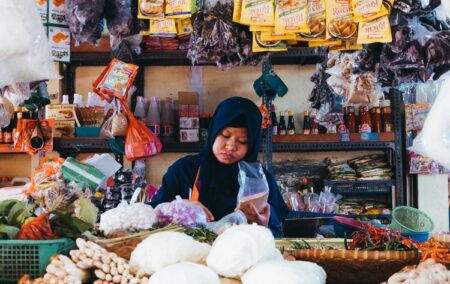The sentiment that black people are not owners, or that black people have no capital, is repeated often by politicians. Social media, as well, has cultivated a narrative of black landlessness, which will remain the root of all poverty (a partially correct analysis) unless some revolution takes place and we reach nirvana. Yet, black people make up a majority of the home-owners (they will say it’s “just debt”), and stokvels saved R44 billion in 2018.
The problem comes in trying to quantify this capital. Much of it holds value only in so-called informal markets, and nowhere else. RDP houses are the perfect example of this, but because of the preemptive clauses, the formal market for RDP houses is dead, while the informal market thrives, creating problems with formalising the title.
Informal markets exist to solve the problems that formal markets are prevented from solving by the virtue of being formal, i.e, being compliant with government legislation, regulations, and so on. This includes access to credit, realising the value in an otherwise dead asset, and every conceivable market transaction that would otherwise not strictly be legal.
The economy is how people live; being disconnected from an economy, or having the economy stop functioning, is a death sentence to many people in the short term, and to everyone in the long run. That is why people who otherwise support the current government would choose to disobey the laws passed by the same government. It’s simply a matter of life and death.
This is why we are likely to see the return of the underground shebeen with this alcohol ban. It never truly died, but it will now have access to much more capital. The actions of the government have mainly served to empower informal markets at the expense of formal markets, and make everyone poorer in the process. A positive approach would have been formally recognising the inherent legality of the transactions performed by most South Africans in this sector.
A simple way to do this would be to pass a law declaring all businesses that are currently in existence, regardless of tax compliance status and compliance with other government laws and regulations (when this doesn’t violate anyone else’s rights as enshrined in the Bill of Rights), to be in compliance with all relevant statutes. Secondly, to start fixing the anomaly in the law that this would create, i.e. some businesses receiving preferential treatment (which is already the case when you consider BEE and other government policy), by developing a national economic policy that grants freedom to all South Africans, big and small business, regardless of who owns them.
The economy has no colour
At the end of the day, the economy is the economy, it has no colour. White people can invest in black business, as much as black people can invest in white business. Everyone can trade with each other as long as they all find value in the transactions. The point needs to be made however that there’s a lot of underestimated value that black individuals and communities can bring to the table, the main barrier to which is the criminalisation of this market.
Consider the differences between government treatment of innovative black entrepreneurs who truly come from nothing, and are unconnected to anyone of political relevance, and the way they treat tenderpreneurs whose so-called companies would not exist without so-called Black Economic Empowerment policies. The government has been known to pat itself on the back through the National Credit Regulator for the number of small credit firms they shut down.
This was particularly the case when the National Credit Act was first introduced in 2005 and immediately after.
Struggle for entrepreneurs
Yet, tenderpreneurs who have routinely caused misery in poor communities are given opportunity after opportunity. The real entrepreneur is always told that he/she does not comply. They are told they need a licence, and need to pay a fee that is usually some ridiculous amount they can’t afford. Indeed, we know from the Zuma era that no law or regulation is an obstacle to the crony.
The poor who cannot access credit elsewhere because the government forbids formal industry from recognising their assets, are forced to go to the credit markets that do recognise the assets they rightly own and have worked hard for in many cases. These include land, savings in a stokvel, cattle, and informal businesses.
Entrepreneurs who are involved in trading substances banned by the government, such as marijuana, also need credit. In order to get it on semi-suitable terms, the creditor has to recognise the value of their business. This would be impossible for a formal bank like Capitec, or Standard Bank, for example.
Values are also different. The traditional medicine market generates millions in revenue, yet many other people in the country would see no value in the products traded. That is not a problem for a diverse country such as ours, we should be free to express our values in peace, as the Constitution guarantees. There is a hive of activity largely hidden from view, in the so-called informal sector. Some have tried to produce estimates of its size but by its nature, it is hidden from view and many parts of it take extraordinary steps to keep itself hidden.
We need to recognise the individuals who participate in these markets for what they are: the heroes who are going to lead this country out of poverty – if the government ever gets out of their way, or they get good enough at avoiding the government.
The views of the writer are not necessarily the views of the Daily Friend or the IRR
If you like what you have just read, subscribe to the Daily Friend
Photo by Devi Puspita Amartha Yahya on Unsplash

